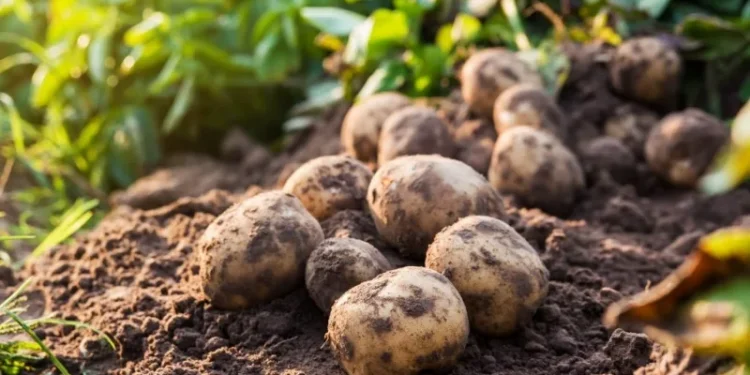Ongoing Transportation Restrictions and Reduced Supply Drive Prices Up in Odisha’s Vegetable Markets
The potato crisis in Odisha remains severe as the state continues to grapple with the effects of an embargo imposed by West Bengal. Despite ongoing negotiations, efforts by the Odisha government to persuade West Bengal to lift the transportation restrictions have so far proven unsuccessful. This embargo, compounded by a reduction in potato procurement from Uttar Pradesh, has led to a significant rise in potato prices within Odisha’s vegetable markets, with current prices ranging between Rs 50 and 60 per kilogram.
Krushna Chandra Patra, Odisha’s Food Supplies and Consumer Welfare Minister, has indicated that discussions with the West Bengal government are ongoing. The state is hopeful that normalcy will return soon. There is also a possibility that the National Agricultural Cooperative Marketing Federation (NAFED) might intervene to facilitate potato procurement from Uttar Pradesh, though the specifics of any government approval for this intervention remain unclear.
The West Bengal government’s response to these requests is still awaited, placing additional pressure on the Odisha administration to seek alternative solutions. The impact of the embargo extends beyond Odisha, affecting BJP-ruled states in the northeast, including Arunachal Pradesh, Assam, Manipur, Meghalaya, Mizoram, Nagaland, Tripura, and Sikkim.
In a small development, five trucks carrying 100 tonnes of potatoes have recently arrived in Odisha from West Bengal. However, these deliveries came with additional transportation charges due to the need to avoid Bengal police, leading to a wholesale price of Rs 3,400-3,500 per 100 kilograms in the Bhubaneswar mandi. This partial relief highlights the ongoing challenges and complexities facing the potato supply chain in the region.
As the situation continues to unfold, stakeholders across the potato industry, including farmers, traders, and supply chain managers, are closely monitoring developments. The outcome of ongoing negotiations and potential interventions will be critical in determining the future stability of potato prices and availability in Odisha and the broader northeast region.







